 W
WThe Abu Dhabi Vegetable Market is the main vegetable market in central Abu Dhabi, United Arab Emirates.
 W
WBurns Road, also known as Burnes Road, or Muhammad Bin Qasim Road, is a street located in Karachi, Pakistan. It is well-known in the city for its many restaurants and street food vendors.
 W
WCarmel Market is a marketplace in Tel Aviv, Israel.
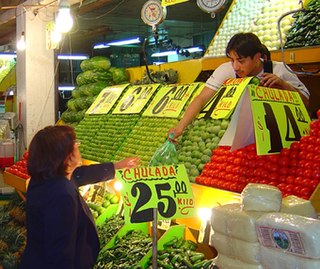 W
WThe Central de Abasto is Mexico City’s main wholesale market for produce and other foodstuffs run similarly to traditional public markets. It was constructed to be the meeting point for producers, wholesalers, retailers and consumers for the entire country. Located in the eastern borough of Iztapalapa, it is the most important commercial establishment in Mexico and the largest of its kind in the world. The market handles over 30,000 tons of merchandise daily, representing 80% of the consumption of the Mexico City metropolitan area. The market was established on former farmland to ease congestion in the historic center of Mexico City.
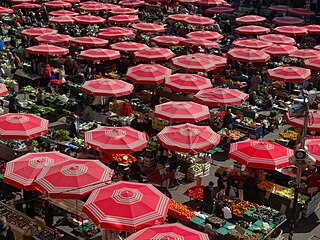 W
WDolac is a farmers' market located in Gornji Grad - Medveščak city district of Zagreb, Croatia. Dolac is the most visited and the best known farmer's market in Zagreb, well known for its combination of traditional open market with stalls and a sheltered market below. It is located only a few dozen meters away from the main city square, Ban Jelačić Square, between the oldest parts of Zagreb, Gradec and Kaptol. The Dolac market Zagreb is centrally located right behind the town’s main square.
 W
WThe Elisabethmarkt is a daily food market in Schwabing, a district of Munich, Germany.
 W
WA fruit stand is a primarily open-air business venue that sells seasonal fruit and many fruit products from local growers. It might also sell vegetables and various processed items derived from fruit. The fruit stand is a small business structure that is primarily run as an independent sole proprietorship, with very few franchises or branches of larger fruit stand conglomerates, though many large food industry businesses have developed from fruit stand businesses.
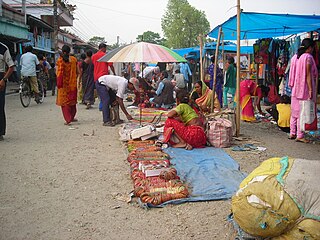 W
WHaat हाट or hat, even haat bazaar, is an open-air market that serves as a trading venue for local people in rural areas and towns of Indian subcontinent, especially in India, Nepal, Bangladesh and Bhutan. Haat bazaars are conducted on a regular basis, i.e. or that is once, twice, or three times a week and in some places every two weeks. At times, haat bazaars are organized in a different manner, to support or promote trading by and with rural people. In addition to providing trading opportunities, haat bazaars serve as meeting places, rural settlements come up around the haats which gradually grow into towns.
 W
WKoyambedu Wholesale Market Complex (KWMC) is one of Asia's largest perishable goods market complex located at Koyambedu, Chennai. The market complex is spread over an area of 295 acres (1.19 km2). Inaugurated in 1996, the complex consists of about 3,100 shops, including more than 1,000 wholesale shops and 2,000 retail shops. Of these, 850 are fruit shops. It abuts the Poonamallee High Road and Nesapakkam Road. In Phase I, a wholesale market for perishables was developed in an area of around 70 acres (280,000 m2) by constructing 3,194 shops. The market has two blocks for vegetable shops and one each for fruit and flower shops. In Phase II, a textile market and in Phase III, a food grain market have been planned to be developed in the complex.
 W
WLes Halles was Paris' central fresh food market. It was demolished in 1971 and replaced by the Westfield Forum des Halles, a modern shopping mall built largely underground and directly connected to the massive RER and métro transit hub of Châtelet–Les Halles. The shopping mall welcomes 150,000 visitors daily.
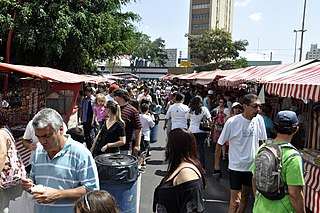 W
WThe Liberdade Street Fair is an art and handicraft fair in the Liberdade district of São Paulo. This popular open air market began in 1975 and operates every Saturday and Sunday from 9am to 6pm near the Liberdade Metro station.
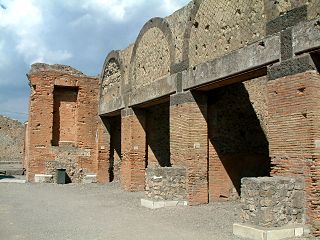 W
WA macellum is an ancient Roman indoor market building that sold mostly provisions. The building normally sat alongside the forum and basilica, providing a place in which a market could be held. Each macellum sold different kinds of produce, depending on local availability, but it was not uncommon to import these comestibles, especially at ports like Pompeii.
 W
WMahane Yehuda Market, often referred to as "The Shuk", is a marketplace in Jerusalem. Popular with locals and tourists alike, the market's more than 250 vendors sell fresh fruits and vegetables; baked goods; fish, meat and cheeses; nuts, seeds, and spices; wines and liquors; clothing and shoes; and housewares, textiles, and Judaica.
 W
WThe Market of San Miguel is a covered market located in Madrid, Spain. Originally built in 1916, it was purchased by private investors in 2003 who renovated the iron structure and reopened it in 2009.
 W
WA meat market is, traditionally, a marketplace where meat is sold, often by a butcher. It is a specialized wet market. The term is sometimes used to refer to a meat retail store or butcher's shop, in particular in North America. During the mid and late 19th century scientific research into epidemiology, sanitation and urban planning in Western countries led to the establishment of meat markets so that the slaughtering and sale of meat could be easily monitored and the risk of disease outbreaks could be minimized.
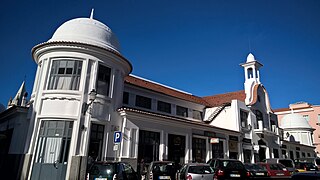 W
WMercado de Campo de Ourique is a neighborhood food market located in Lisbon, Portugal.
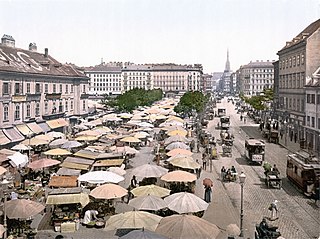 W
WThe Naschmarkt is Vienna's most popular market. Located at the Wienzeile over the Wien River, it is about 1.5 kilometres (0.93 mi) long.
 W
WPak Khlong Talat is a market in Wang Burapha Phirom Subdistrict, Phra Nakhon District, Bangkok, Thailand, that sells flowers, fruits, and vegetables. It is the primary flower market of Bangkok and has been cited as a "place of symbolic value" to Bangkok residents. It is on Chak Phet Road and adjacent side-streets, close to Memorial Bridge. Though the market is open 24 hours, it is busiest before dawn, when boats and trucks arrive with flowers from nearby provinces. Its location by Chao Phraya River near mouth of canal Khlong Lot, hence the name 'Pak Khlong Talat', literally meaning "the mouth of the canal of the market".
 W
WA palengke is a permanent wet market in the Philippines.
 W
WProvençal markets or markets of Provence have become one of the regional emblems of Provence-Alpes-Côte d'Azur. Traditional markets held in a town or village are events that are both a celebration of local identity, and a collective ceremony in which everyone is both the participant and spectator, as well as a meeting place where everyone is equal and no one is excluded.
 W
WThe Rungis International Market is the principal market of Paris, mainly for food and horticultural products, located in the commune of Rungis, in the southern suburbs. It is the largest wholesale food market in the world.
 W
WSarona Market is the largest enclosed culinary market in Israel., located in the southern edge of the city's Templer Colony restoration project in Sarona, Tel Aviv. Sarona Market was constructed by Gindi Holdings and opened in 2015, and is the first indoor market in Israel. After its establishment, other enclosed markets were built throughout the country. In Sarona Market, there are about 90 businesses, including retail stores, food stands and restaurants. The complex is a popular tourist attraction
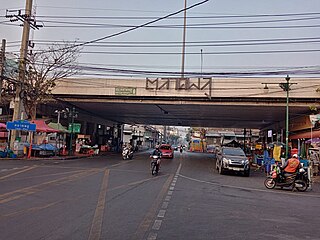 W
WTalat Phlu or Talad Phlu is a community and marketplace by the canal Khlong Bangkok Yai in Talat Phlu Subdistrict, Thon Buri District, Thonburi side of Bangkok.
 W
WA tholos, in Latin tholus, is an architectural feature that was widely used in the classical world. It is a round structure, usually built upon a couple of steps (podium), with a ring of columns supporting a domed roof.
 W
WWang Lang Market is a daily market in Bangkok Noi district next to Siriraj Hospital and Chao Phraya river in Bangkok's Thonburi side.
 W
WA wet market is a marketplace selling fresh meat, fish, produce, and other consumption-oriented perishable goods in a non-supermarket setting, as distinguished from "dry markets" that sell durable goods such as fabrics and electronics. These include a wide variety of markets, such as farmers' markets, fish markets, and wildlife markets. Not all wet markets sell live animals, but the term wet market is sometimes used to signify a live animal market in which vendors slaughter animals upon customer purchase, such as is done with poultry in Hong Kong. Wet markets are common in many parts of the world, notably in China, Southeast Asia, and South Asia. They often play critical roles in urban food security due to factors of pricing, freshness of food, social interaction, and local cultures.
 W
WIn Hong Kong, wet markets are traditional markets that sell fresh meat, produce, and other perishable goods. There are wet markets in most neighbourhoods of Hong Kong and they often cater to older residents, low-income residents, and domestic workers. They are regulated by the Food and Environmental Hygiene Department (FEHD).
 W
WThe consumption and production of marketed food are spatially separated. Production is primarily in rural areas while consumption is mainly in urban areas. Agricultural marketing is the process that overcomes this separation, allowing produce to be moved from an area of surplus to one of need. Food reaches the consumer by a complex network, involving production, assembly, sorting, packing, reassembly, distribution and retail stages. In developing countries the linkage between the producer and the retailer is still usually provided by assembly and wholesale markets, where wholesale marketing takes place using a variety of transaction methods. Recent years have seen an expansion of wholesale marketing in European and former CIS countries. On the other hand, the growth of supermarkets in many regions has seen the development of direct marketing and a reduced role for wholesale systems.
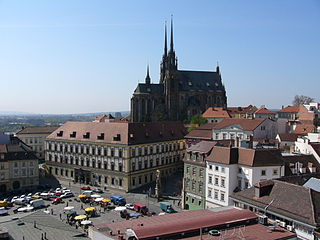 W
WZelný trh, German: Kraut Markt, local German dialect: Krótmók, Moravian local dialect: Zeléné renk. is a traditional street - open air market in Brno, Moravia, Czech Republic. The Zelný trh is Czech Republic's most popular market. Located at the directelly in Brno city centre, under the cathedral it is about 1 acre large. It is the largest and oldest traditional market in Brno and whole Czech republic and Central Europe also. The market contains many shops that sell vegetables, fruit, meat, fish, flowers, plants, seeds, seedlings, breads, moravian kolatche, spices, nuts, eggs, cheese, and Moravian traditional spices and herbs items. The market also has many small restaurants and street-food stalls. It is located in Zelný trh, one of the two main squares in Brno, daily from Monday to Saturday 7.00-16.00 houres.
 W
WThe Zibelemärit is an annual market with aspects of a fair in the old town of Bern, Switzerland. It takes place the fourth Monday in November.